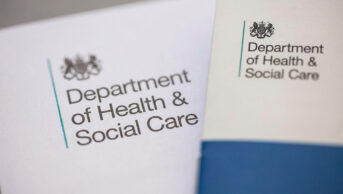
Shutterstock.com
The national minimum wage increase announced in the 2025 autumn budget will add to the financial pressures facing community pharmacy and may prove too much for some, pharmacy leaders have warned.
As part of her autumn budget, announced on 26 November 2025, chancellor Rachel Reeves said that from April 2026, the legal minimum wage for people aged over 21 years will increase by 4.1% to £12.71 per hour, while the rate for those aged 18–20 years will rise 8.5% to £10.85 per hour.
Pharmacy leaders said that the increases will add to mounting financial pressures on community pharmacies.
Henry Gregg, chief executive of the National Pharmacy Association, said: “Pharmacy staff across the country are absolutely deserving of a pay rise, but the increases announced today will add significantly to the financial pressures pharmacies are under as businesses and as a core component of the health service across the UK.
“Adding 4% plus to the minimum wage makes the financial mountain they are facing even bigger.”
Leyla Hannbeck, chief executive and executive chair of the Independent Pharmacies Association, described the budget as “deeply disappointing for community pharmacies”.
“There is very little here to help community pharmacies keep their doors open. The increase in the minimum wage without any support for already struggling businesses will push more branches towards closure,” she said.
“We urgently need sustainable funding for the pharmacy sector to stabilise services and protect patient access.”
Janet Morrison, chief executive of Community Pharmacy England, said the increases to staffing costs were “very concerning, and may prove unmanageable for some pharmacy owners as they continue to grapple with extreme financial and operational pressures”.
“It is critical that the upcoming [Community pharmacy contractual framework] negotiations recognise the impact of staff cost rises on pharmacies, and that we make further progress along the promised path towards a sustainable model for the sector.
“If we don’t, patients and wider primary care providers will continue to feel the effects of service deterioration and pharmacy closures,” she added.
“We will ensure that ministers know the impact that this budget will have on community pharmacies and remind them of the huge benefits that investment in community pharmacies would bring. As government has rightly recognised, a fully supported community pharmacy network would have so much to offer patients and to help deliver the ten-year health plan: the impact of this budget must be mitigated, to prevent it from representing a step backwards from that vision.”
As The Pharmaceutical Journal understands, the government has yet to begin discussions with the negotiator about the next pharmacy contract.
Claire Anderson, president of the Royal Pharmaceutical Society, stressed the need for pharmacy workforce planning.
“[The] budget must be backed by a clear plan to fully utilise the skills of the pharmacy workforce, enabling care to be delivered closer to patients’ homes.”
“Medicines and workforce are the NHS’s biggest areas of spend and pharmacists play a fundamental role in improving access, boosting prevention and keeping people well,” she said.
“With the right support and infrastructure, pharmacy teams can further support the priorities of the NHS, expanding access to care in the community and helping release capacity within other parts of the NHS.”
On 21 November 2025, the government announced that prescription charges would be frozen for the 2026/2027 financial year.
Malcolm Harrison, chief executive of the Company Chemists’ Association, described the decision as “positive news for patients”.
However, he added: “It must be emphasised that prescription charges in no way benefit pharmacies. Pharmacy teams are required to collect this levy on behalf of the government. Collecting prescription charges creates an additional administrative burden to already stretched pharmacy teams, who should not have to police and collect what is in effect a health tax on behalf of the government.”
Paul Day, director of the Pharmacists’ Defence Association (PDA), commented: “While we would rather that prescription charges were abolished entirely in England as they already are in Wales, Northern Ireland and Scotland, freezing them alongside the freeze on regulated rail fares and fuel all help working people, including pharmacists.
“However, some other changes that help pay for the above are less welcome, such as the freezing of tax thresholds, which means it becomes likely more pharmacists will pay higher tax rates on some of their income, and those who have done right for the environment by purchasing electric cars may be disappointed that a mileage tax, while ultimately inevitable, has been introduced already.”
Day added that the PDA would be “closely monitoring” how developments, such as neighbourhood health centres, would impact the current and future pharmacist workforce.
Reeves also outlined plans for patient care to be brought “closer to home” through 250 neighbourhood health centres.


